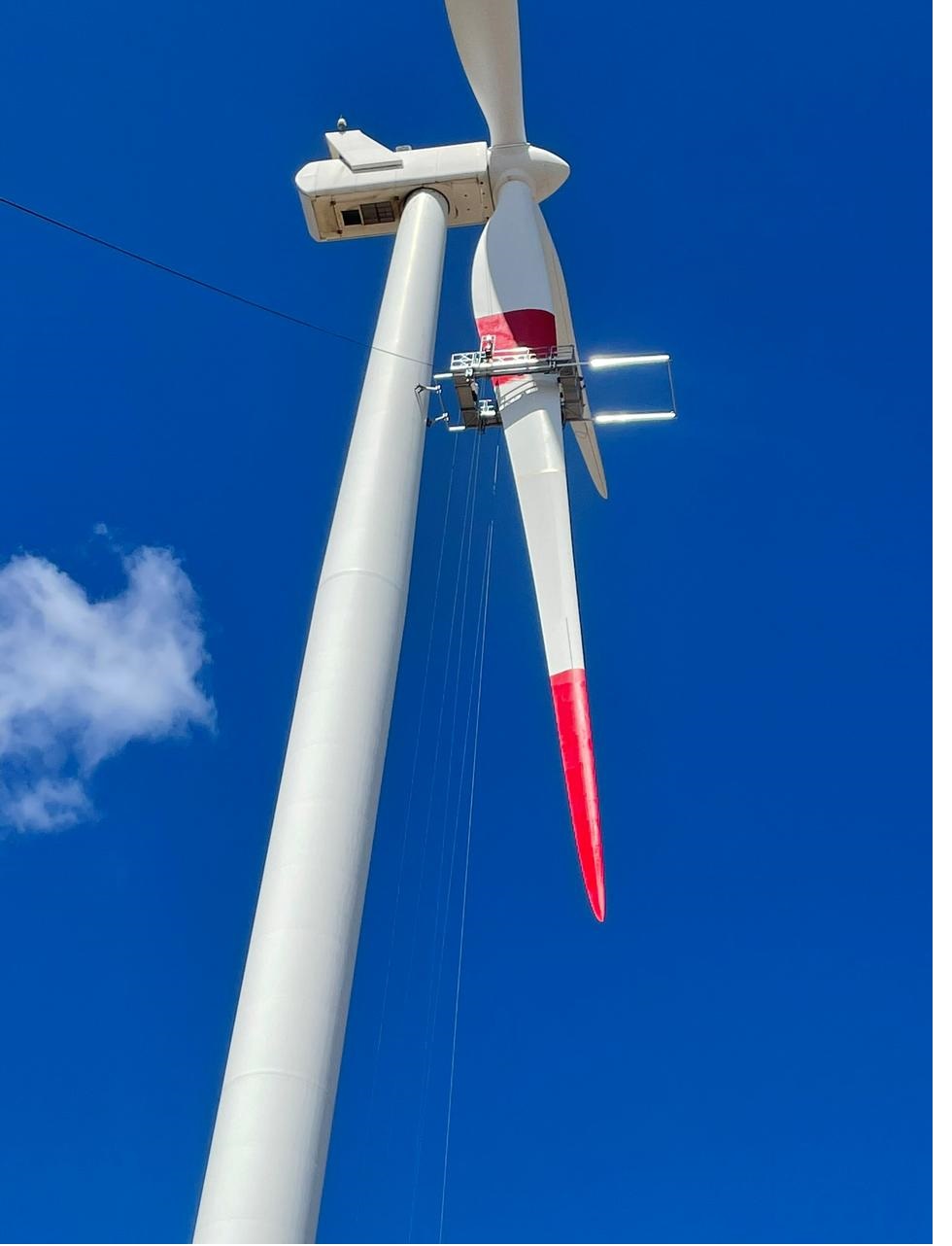EIMS Africa’s portfolio company, Umoya Energy Wind Farm, situated on the West Coast (Western Cape), has taken the lead on improving the country’s wind industry approach to conserving avifauna. Previously known as Hopefield Wind Farm, the country’s first REIPPPP project, the wind farm has successfully implemented blade painting, as a mitigation measure.
 Blade painting entails painting one of the three blades on a wind turbine black or red. The effect of the single painted blade breaks up the so-called ‘motion-smear’ experienced by most bird species, rendering the blade invisible to them.
Blade painting entails painting one of the three blades on a wind turbine black or red. The effect of the single painted blade breaks up the so-called ‘motion-smear’ experienced by most bird species, rendering the blade invisible to them.
This blade painting mitigation action greatly decreases the possibility that priority species birds would fly into wind turbines, and simultaneously does not impact the power output that the wind farm is targeting.
“Having successfully engaged and consulted with our wind turbine supplier to ensure that the blade painting wouldn’t impact production and warrantees, one of the biggest undertakings was securing approval from the South African Civil Aviation Authority,” said Ryan Hammond, CEO of EIMS Africa and the Umoya Energy Wind Farm.
Following an avian fatality assessment undertaken by ornithologist, Dr Rob Simmons, Conservation Biologist and CEO of Birds & Bats Unlimited, it was suggested that these measures be implemented on site as a pro-active measure, despite the low fatality rates recorded.
Hammond explains the importance of consultation and managing a team to successfully implement this programme, which will no doubt assist future wind farms, wanting to undertake the same.
“Wind turbines are finely balanced machines. Adding any additional weight to wind turbine blades can affect their performance and so the blade painting process required various testing procedures and approvals. However, leading the way with the South African Civil Aviation Authority will help us with future projects of this nature, as well as our colleagues in the industry, as the foundations are now set.”
This is not the first pioneering project successfully managed by EIMS Africa, as this wind farm was also the first renewable energy project in South Africa to enter into a Biodiversity Offset Agreement with SANParks.















